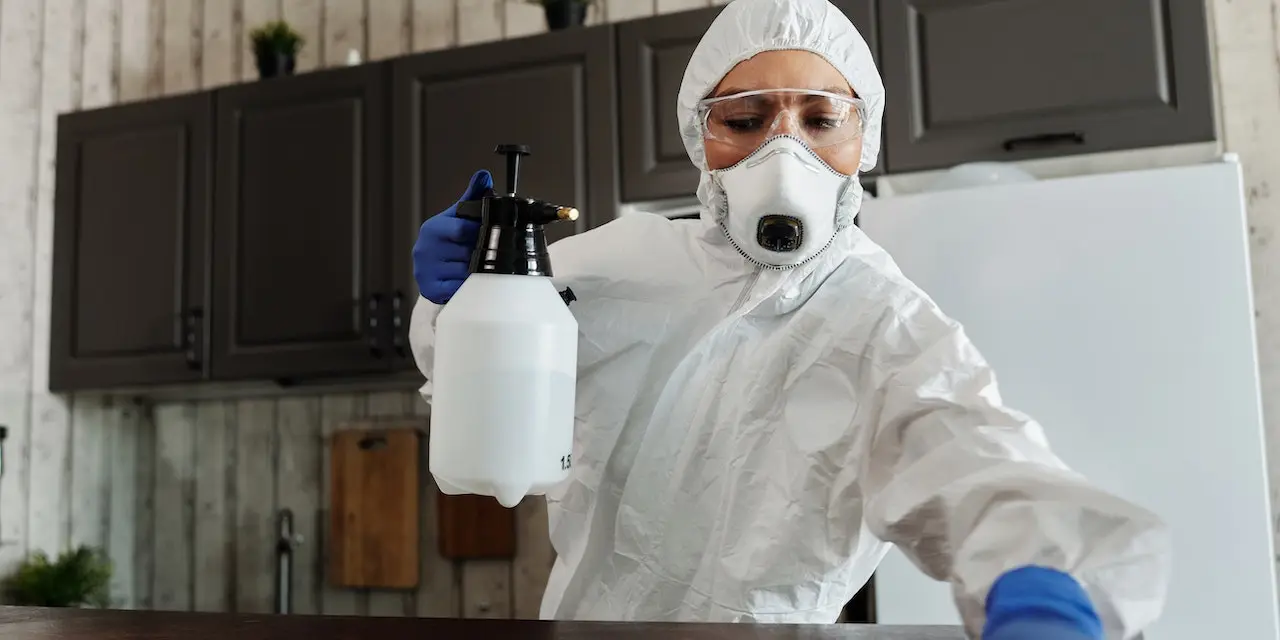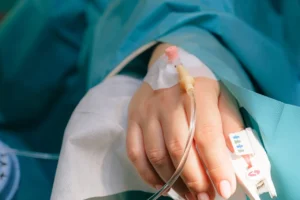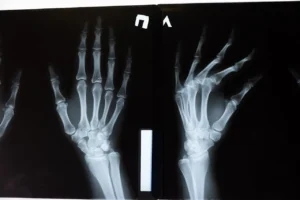
Four Analyses of Data for REBYOTA™ (fecal microbiota, live – jslm), the First FDA-Approved Microbiome-Based Treatment for the Prevention of Recurrent C. difficile Infection, Presented at DDW 2023
Ferring Pharmaceuticals today announced three oral presentations and one poster presentation at Digestive Disease Week® (DDW 2023) for REBYOTA™ (fecal microbiota, live – jslm) a first-in-class single-dose microbiome-based treatment approved by the U.S. Food and Drug Administration (FDA) for the prevention of recurrent C. difficile (C. diff) infection in individuals 18 years of age and older, following antibiotic treatment for recurrent C. diff infection.
The analyses reviewed the safety of REBYOTA (previously known as RBX2660) in patients with inflammatory bowel disease, as well as safety and efficacy in immunocompromised patients and when administered by colonoscopy. An additional analysis looked at microbiome compositional changes and clonal engraftment following treatment with REBYOTA.
The first ad hoc analysis (Safety outcomes and concomitant medication changes in patients with inflammatory bowel disease being treated with RBX2660 for recurrent Clostridioides difficile infection; Session number 699) evaluated safety outcomes and changes in IBD-related medications after REBYOTA treatment in adults with recurrent C. diff infection categorized by IBD comorbidity subgroups in the ongoing Phase 3 PUNCH CD3-OLS trial and a completed retrospective study of use under enforcement discretion.
In the pooled safety population (N=547), 18 patients were identified as having Crohn’s disease only and 38 had ulcerative colitis only. Of the 56 patients evaluated, 39 patients (69.6%) received IBD-related medication at the time of REBYOTA administration. The number of IBD-related medications taken when REBYOTA was administered and/or during the eight-week observational baseline period were compared to those at eight weeks after administration. Participants were monitored for treatment-emergent adverse events (TEAEs) for at least six months after treatment.
The analysis showed that 82.1% (n=32/39) did not experience an IBD-related medication change after eight weeks. Seven participants stopped or initiated concomitant medication within eight weeks of treatment. The incidence of TEAEs was comparable in patients with or without IBD (57.1% vs. 63.1%). TEAEs were mostly gastrointestinal in nature, predominantly diarrhea and abdominal pain.
“Underlying IBD is a known risk factor for recurrent C. diff infection, but prospective clinical trials often exclude these patients,” said Jessica Allegretti, M.D., M.P.H., Brigham & Women’s Hospital. “This analysis is important as it reflects results from a real-world patient population seen in clinical practice.”
In a separate ad hoc analysis of the PUNCH CD3-OLS trial evaluating the safety and efficacy of REBYOTA in immunocompromised patients (Safety and efficacy of RBX2660 in reducing recurrent Clostridioides difficile infection in immunocompromised patients; Session number 700), 91 out of 483 participants had an underlying immunocompromising condition, including cancer and end-stage renal disease. A similar percentage of participants with and without immunocompromising conditions (64.8% and 62.0%, respectively) reported TEAEs. Most participants with and without immunocompromising conditions experienced TEAEs that were mild or moderate in severity (42.9% and 47.7%, respectively) with GI disorders, including diarrhea, abdominal pain and nausea, the most frequently reported TEAEs. Serious TEAEs were reported in 19.8% and 8.4% of participants with and without immunocompromising conditions, respectively, and most were related to C. diff infection or preexisting conditions. Treatment success (defined as the absence of recurrent C. diff infection through eight weeks after treatment) was comparable in patients with and without immunocompromising conditions (79.5% and 73.5%, respectively). Sustained clinical response through six months was maintained in 80.0% and 85.0% of treatment responders with and without immunocompromising conditions.
The poster presented a retrospective subgroup analysis evaluating the safety and efficacy of REBYOTA administered via colonoscopy (Retrospective subgroup analysis of RBX2660 administered by colonoscopy under enforcement discretion for the reduction of recurrent Clostridioides difficile infection; Poster number Su1866). In the analysis, patients with recurrent C. diff infection and treated with REBYOTA under the Assured Active Treatment (AAT) program were retrospectively identified across five clinical trial sites. The AAT program offered REBYOTA to adults not eligible for clinical trial participation or who needed additional treatment following study participation. The primary endpoint was the number of participants with REBYOTA and/or procedure related TEAEs. The secondary endpoints were treatment success, defined as the absence of recurrent C. diff infection eight weeks after the final dose and sustained clinical response for six months after treatment. Of the 94 participants in the full analysis set, 39 received one dose of REBYOTA and 10 of those patients received treatment via colonoscopy. Two participants who received treatment via colonoscopy but did not have comprehensive medical records were considered treatment failures.
TEAEs were reported in 75% of participants (six of eight). Most TEAEs were mild to moderate in severity and were not due to REBYOTA or its administration, with the most common TEAEs being GI disorders and infections/infestations. Treatment success was reported in eight of the 10 participants who received REBYOTA via colonoscopy. Six of the eight participants who reported treatment success had a sustained clinical response at six months.
“Doctors often see recurrent C. diff infection patients with comorbidities and perform routine colonoscopies for them,” said Paul Feuerstadt, M.D., F.A.C.G., A.G.A.F., Yale University School of Medicine. “This is some of the first data that looks at REBYOTA being administered via colonoscopy in this patient population.”
An oral presentation (Significant and durable microbiome compositional changes and clonal engraftment in a Phase 3 trial of RBX2660 for recurrent Clostridioides difficile infection; Session number 697) on a post-hoc exploratory analysis evaluated microbiome compositional changes and clonal engraftment in participants in the PUNCH CD3 Phase 3 clinical trial for REBYOTA. The analysis examined the necessity to differentiate among clonal populations to assess engraftment. Samples provided by REBYOTA-treated patients were assessed to determine if the species present after treatment were those present in the REBYOTA dose they received. The analysis showed that the clinical response in the Phase 3 trial was associated with clonal engraftment and Bacteroidia– and Clostridia-class bacteria were the most effective engrafters. The control analysis showed no significant clonal engraftment in placebo-treated participants.
About Ferring Pharmaceuticals
Ferring Pharmaceuticals is a research-driven, specialty biopharmaceutical group committed to helping people around the world build families and live better lives. Headquartered in Saint-Prex, Switzerland, Ferring is a leader in reproductive medicine and women’s health, and in specialty areas within gastroenterology and urology. Ferring has been developing treatments for mothers and babies for over 50 years and has a portfolio covering treatments from conception to birth. Founded in 1950, privately owned Ferring now employs around 7,000 people worldwide, has its own operating subsidiaries in more than 50 countries, and markets its products in 100 countries.
Source link:https://www.ferring.com/




